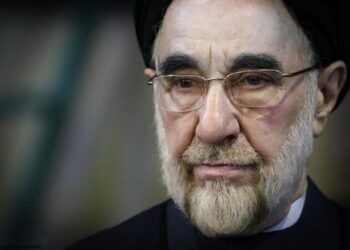Last December, the US Treasury added Major General Hassan Firuzabadi, the chief of the Joint Staff of the armed forces, to the list of Iranian officials who cannot receive American visas because of their roles in missile and nuclear development. The listing also meant that any funds Firuzabadi had in the United States would be frozen.
Speaking to the Fars news agency Monday, Firuzabadi, who is a physician by training, pointed to his activities in scientific and industrial fields during the eight-year war with Iraq and his work treating victims of chemical weapons.
He said, “Now I want to lodge a complaint against the US Department of the Treasury because they are against humanitarian services and efforts for Iran’s national security and independence and consider it as a criminal act.”
“The US should be accountable to world public opinion for its irrational, unjustified and undocumented move,” Firuzabadi said, ignoring the explanation the Treasury gave for sanctioning him.
Firuzabadi was denying the US right to deny him a visa although the Islamic Republic—not to mention all other states in the world—declare it is their right to determine whom to allow in and whom to deny entry. Firuzabadi did not explain the double standard.
The general further said that imposing such bans on Iranian officials shows America’s hatred of Islamic thought and its growth around the world.
Firuzabadi did not say where he planned to sue the United States. The only courts with jurisdiction over the matter are US courts. And to gain standing for a court suit, he would have to show that he had been denied a visa or had assets frozen in the United States.
Iranian officials constantly make announcements about plans to sue the US government, but do not follow through. The last known instance of such a suit originated by Iran was a quarter-century ago when the Islamic Republic sued Washington over the US Navy attacks on offshore Iranian oil installations. Iran sued in the International Court of Justice and won a partial victory.
The sanctions are mainly symbolic, since very few Iranian officials are prone to travel to the US or have any assets in the United States. In fact, no assets of any Iranian have been frozen under these sanctions.














